monk
VIP免费
2024-12-13
1
0
319.81KB
100 页
5.9玖币
侵权投诉
THIS MONK FROM INDIA
By
YVONNE LEBEAU
Sri Swami Sivananda
Founder of
The Divine Life Society
SERVE, LOVE, GIVE,
PURIFY, MEDITATE,
REALIZE
So Says
Sri Swami Sivananda
Sri Swami Chidananda
Chidananda is a Jeevanmukta, a great saint,
an ideal Yogi, a Para Bhakta and a great sage.
Swami Chidananda is all this and much more....
He was born to fulfil a great mission.
He is the torch-bearer of my mission.
—SWAMI SIVANANDA
A DIVINE LIFE SOCIETY PUBLICATION
Second Edition: 1989
(2,000 Copies)
World Wide Web (WWW) Edition: 1999
WWW site: http://www.SivanandaDlshq.org
This WWW reprint is for free distribution
© The Divine Life Trust Society
Published By
THE DIVINE LIFE SOCIETY
P.O. SHIVANANDANAGAR—249 192
Distt. Tehri-Garhwal, Uttar Pradesh,
Himalayas, India.
DEDICATED
TO
MY GURU
His Holiness Pujya Sri Swami Chidanandaji Maharaj
and through him
to all the Gurus
who in an unbroken line
for the past many millennia
have transmitted to mankind
the spiritual heritage
of the holy land of India.
PUBLISHERS’ NOTE
This book by Yvonne LeBeau, a spiritual seeker from France, is in the nature of a tribute to
her Guru or spiritual mentor, Sri Swami Chidanandaji Maharaj. An interesting aspect of the book is
the light it throws on the encounter between the occidental mind and oriental philosophy. Another
aspect of the book—and an equally significant one—is the insight it gives into the various struggles
which every spiritual seeker has to undergo in traversing the path of Yoga or conscious spiritual
evolution. It speaks volumes for the magnanimity of the author that she has been motivated by an
earnest desire that the message of this book, viz., the message of Yoga-Vedanta, should be
broadcast far and wide, especially in the Western world. May God bless her with health, long life
and many more years of spiritual service and illumination too!
The present edition is enriched with fresh matter that the writer felt would add to the value
of the book. We are grateful to Dr. Anil Suchak who sponsored the publication of this book in
memory of his brother, Dr. Ashok Suchak, who was called back to his Heavenly Abode in March
last year.
Shivanandanagar,
March 3rd 1989 The Publishers
iii
THE ORIGIN OF THIS EDITION
It is the good fortune of my family and myself that Gurudev Swami Chidanandji Maharaj’s
blessings have been with us for the last several years. On a number of occasions we have had the
proud privilege of serving Swamiji and coming close to him, and also having his discourses and
attending his Satsangs. On yet other occasions Swamiji pulled us out of the mire of despair in our
personal problems, and showed us light where we could only see darkness.
But sometime back, quite by chance, I happened to lay my hands on a book called THIS
MONK FROM INDIA, written about Swamiji by a foreign devotee, Mrs. Yvonne LeBeau. After
reading the book, I was amazed that everything I had experienced earlier and known about Gurudev
was, as it were, re-lived by me in the course of going through the writing of the author. It was indeed
a revelation to have an intimate glimpse into Swamiji’s life, and it was almost as if Gurudev himself
had been talking to me.
Ever since, I have recommended this book to many friends, who have read it and have been
similarly drawn to Gurudev afterwards. Subsequently, I tried to obtain copies of the book from the
Ashram as well as from devotees etc., but was unable to do so. This gave birth to the thought of
publishing another edition of the book and thereby spread the message of Gurudev. Here then is a
new edition of the book, which will not only delight those of us who know Gurudev, but will also
prove a source of inspiration to countless others who have not had the good fortune of knowing
Gurudev and deriving invaluable guidance from his life and thoughts.
Ever longing for the blessings of my GURU.
8th March 1989 —Dr. Anil N. Suchak
Suchak Prakashan
Divine Life Society (Malad Branch)
186, Manchhubhai Road,
Malad (E), Bombay—400 097.
Tel.: 6914 84 ! 688 52 29
AUTHOR’S PREFACE
After coming to Sivananda Ashram and into contact with Pujya Sri Swami Chidanandaji
Maharaj, I have received many letters from devotees and friends asking me to put down in writing,
for the benefit of all, some of the stories I had told them on different occasions. Some said, “If you
can’t write, tape record them and we will write them. We have been so inspired by them and
everywhere we relate them, people have the same reaction. Those stories must not get lost and
forgotten, for they depict Swamiji’s saintliness better than words of devotion could ever do. And for
Westerners, for people who are new to Yoga, those stories show what a Guru like Chidananda
really is. They show how he can protect, teach and guide the disciple who has faith in him, and how
faith can work wonders.”
iv
“Relate your own experiences too,” they said, “for though we can read such things in books,
it is so inspiring to see it happening to one of us, someone we know, one who led a very happy life
and who was very much attached to everything, to everyone around her, her husband, her children,
even to her country, and her security, and possessed no special qualities whatsoever.”
But as I found myself unable to speak in front of a tape recorder, I started to write in
long-hand. At first I was a little apprehensive as I tried to describe the wonders of Swamiji’s
saintliness, his awe-inspiring greatness; for, how could something which surpasses human
understanding be put into words? Also, how could I speak of a philosophy I knew so little about?
Was not my way of Yoga more a way of acceptance and experience first, with knowledge coming
slowly afterwards?
But, as I went on with my work, a great joy came over me; for writing about Swamiji meant I
was in his invisible presence all day; his grace guiding me, help coming from all sides.
When the book was practically finished, some Indian ladies, great and sincere devotees of
Swamiji, told me, “You should not have been so short in the description of how you met Swamiji
and of your own experiences. For us Indians, it is the most inspiring part, especially as you are a
Westerner.”
So I added a few pages, where I tried to describe the role of Chidananda in my life and the
wonders of his guidance, which I was then made to realise anew; and a song of gratitude, a song of
joy welled up in my heart. If I had been reluctant to write about my sufferings and trials, I was now
made to be happy because I realised that it would bring a message of hope to all the suffering ones.
They would know forever, as Charles de Foueault expresses so beautifully, that “the darker the
night of suffering, the more radiant the ‘life’ of pure love and joy that emerges from it”.
Now I must say a special thanks to Sri Ananthanarayanan who took the. responsibility of
editing, planning and supervising the production of the book in all its stages.
I shall never forget the day of the celebrations of Swami Chidananda’s jubilee when he
arrived from Delhi only just in time to give me the book so as to present it to Swamiji. He was
exhausted after the many troubles he had to get the book printed because of the many strikes in
Delhi. And the way he rushed up the hundred steps of the mountain to bow and offer his work at the
feet of Sivananda, his beloved guru, moved me deeply. I will never forget the way he had the
patience to decipher the pages about my son’s death. I had written them for myself. The mechanics
of writing and the profuse tears that I had shed while doing it had seemed to relieve me and keep me
alive. But the tears had wet the paper and made it practically impossible to read what I had written.
Ananthanarayanan often had to put the sheets of paper against a light so as to be able to read
my words.
The feelings he felt for the book, the intuition he had that I could write and transmit them,
and the perseverance with which he infused courage into me to publish the book afterwards is also
something rare. So if the book has helped many a seeking soul, it is in great part to him that their
hearts should turn to in gratitude.
v
I would also like to say a very special word of thanks to the Brahmachari who took the
trouble to type the few additions people had asked me to write for this new edition. And this in the
midst of all occupations, and in spite of the difficulties my very bad handwriting was to be for him.
When I proposed to ask someone to help him, but he refused and I was made to understand that he
wanted to do it as a labour of love for his Guru.
As I write this last sentence, a thought comes to me that from the start this little book has
been coming into life, into the hands of love. First of all, from the people of the different countries in
the West who persevered in asking for it, even sending letters to ask Swamiji to make me write it.
From Indian people themselves, and somehow always from the most truly and sincerely spiritual
ones. I shall never forget the way one day Brigadier Sabherwal stopped a convoy he was leading
and came down from his turret to ask me about the book. When I told him I had not started it and did
not feel capable of doing it, just the way he climbed up again into his turret without a word broke my
heart. Back in my kutir, I started to write and never stopped until it was completed in time for the
celebration of Swami Chidananda’s Jubilee.
I shall never forget how the Commander-in-Chief, General Raina came with his wife and
some of his staff “to meet the French Lady who had written THIS MONK FROM INDIA”. When
Swami Chidananda told me about his visit, I proposed to go and meet him in Delhi so as to save him
the trouble of coming to the Ashram with the display of security that it meant. He refused and said
“he wanted to honour the woman who had written THIS MONK FROM INDIA”. I shall never forget
my apprehension at the idea this big event that his visit was to be for all the ashrams around here,
and how this apprehension vanished when I saw his simplicity, his sincerity, his directness and his
humility. I shall never forget his wife either. They were both so alike, and it was such an
unforgettable joy for me to meet them both. I was so sorrowful to see them go, and even as I write
this my heart goes out to them both, and to God who allowed me to meet such people, people who
give one such faith in one’s fellowmen, and even expands one’s heart into God.
I shall never forget the Indian ladies who came to me in my kutir. They themselves had lost
their sons; and they had only recovered their faith in God, their faith in an after-life, after reading the
story of my son’s death, that they came to tell me their joy. The way they had had to travel,
sometimes three days in the most uncomfortable conditions, just to come and thank me is
something that ever moves me anew.
Sivananda Ashram,
July, 1988.
vi
SWAMI CHIDANANDA (b. 1916) is the President of the Divine Life Society founded by
that illustrious sage of modern times, H.H. Sri Swami Sivananda. Swami Chidananda had his
education in the Loyola College, Madras, and this training in a Catholic institution left an indelible
impression in his mind of the Christian ideals of compassion and service. Service of the sick is a
passion with Swami Chidananda, and his pioneering work in the field of leprosy relief in the
Garhwal region has earned for him the praise of both the Government and the general public.
Acclaimed by many as a great Saint and Yogi in his own right, Swami Chidananda has been
travelling extensively all over the world disseminating the healing message of his Master, Swami
Sivananda. A linguist and orator, he is also the author of a number of books on the life spiritual.
vii
CONTENTS
PUBLISHERS’ NOTE ......................................iii
THE ORIGIN OF THIS EDITION ................................iv
AUTHOR’S PREFACE......................................iv
THE GURU COMES INTO MY LIFE ..............................1
DEATH UNFOLDS ITS MYSTERIES .............................10
AM I A HINDU? .........................................21
MOTHER INDIA ........................................27
THE POWER THAT PROTECTS................................34
WITH SWAMIJI IN THE ASHRAM ..............................41
SELF-RESTRAINT: THE FOUNDATION OF YOGA.....................47
PAULA: ABHISHIKTANANDA: KARUNANANDA .....................51
THE REDEEMER ........................................57
THE DIVINITY OF WOMANHOOD..............................62
CHIDANANDA AND THE CHILDREN OF FATHER DAMIEN...............67
BIRDS, BEASTS AND INSECTS................................72
LIKE UNTO CHRIST ......................................75
AS THE WEST VIEWS HIM ..................................82
EPILOGUE............................................90
viii
1
THE GURU COMES INTO MY LIFE
All my life, suffering seemed to be my way. I seemed to accept it. What else could I do?
But when my nearest and dearest ones were in agony, I lifted my fist to God and shouted in
revolt. This revolt, however, did not last. My arm fell down, and, moved by a mysterious impulse, I
fell on my knees and with bowed head said, “Thy will be done, Oh Lord...I want nothing.” Then
everything started. My breathing, for instance. The movements of my body were not my own any
more. Mudras, Asanas and Pranayama came to me spontaneously, automatically. I watched it all in
perfect composure. I seemed to forget food and sleep, but my half-paralysed body slowly began to
recover movement and strength. My mind did not ask any question, but a holy man spoke to me and
said, “Mystical fervour can burn you up. Now you are in touch with God. Ask for health and
strength.” He was a knowing man, so I obeyed. I knelt down. But even before I could start praying
in the manner advised by the holy man, a mysterious soul whisper came to me, “Don’t you think I
know best? Didn’t you say ‘Thy will be done”? I did not talk anymore to anyone. I knew that I knew
best and I was at peace. My body had hardly begun to recover movements and strength when
Chidananda came. I left everything without a glance backward. I knew nothing about Yoga and he
was the first Swami I had ever seen. But I knew that I knew him from beginningless time. After the
Satsang, I was the only one who did not ask questions. Swamiji noticed it.
“You have no questions?”
I bowed my head in response. My heart was full. And to the Presence within me I said,
“Crucifixion seems to be my way,
but if this be the quickest way
to Thee, my Lord,
I thank Thee for Thy mercy.
Didn’t Jesus show us the way?”
In Lyons, I was staying in the home of M., a great devotee of Swami Sivananda, when one
day a Swami, who was also a devotee of Swami Sivananda, asked me, “You are so blissful, so
radiant, though you are new to Yoga. How did it all start with you?” I answered, “Oh, I don’t know,
it just happened.” But everyone insisted, “You must try and remember. Tonight at dinner, you must
tell us. It would be so inspiring. It would renew our faith.”
That afternoon I did a lot of soul-searching, when suddenly I realised that a new kind of joy
had come into my life.
When had this begun? Then I remembered, and that night at dinner I told my friends, “I
know when everything really began. It was the day when I first revolted against God and lifted my
fist and shouted at Him. Then I fell on my knees and I was made to say, ‘THY WILL BE DONE, I
WANT NOTHING.’” I had hardly finished saying this when the door bell rang insistently. It was
1
摘要:
展开>>
收起<<
THISMONKFROMINDIAByYVONNELEBEAUSriSwamiSivanandaFounderofTheDivineLifeSocietySERVE,LOVE,GIVE,PURIFY,MEDITATE,REALIZESoSaysSriSwamiSivanandaSriSwamiChidanandaChidanandaisaJeevanmukta,agreatsaint,anidealYogi,aParaBhaktaandagreatsage.SwamiChidanandaisallthisandmuchmore....Hewasborntofulfilagreatmission...
声明:本站为文档C2C交易模式,即用户上传的文档直接被用户下载,本站只是中间服务平台,本站所有文档下载所得的收益归上传人(含作者)所有。玖贝云文库仅提供信息存储空间,仅对用户上传内容的表现方式做保护处理,对上载内容本身不做任何修改或编辑。若文档所含内容侵犯了您的版权或隐私,请立即通知玖贝云文库,我们立即给予删除!
相关推荐
-
.net笔试题选择题集VIP免费
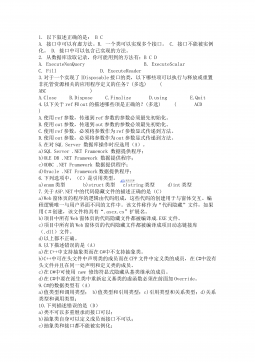
 2024-11-14 29
2024-11-14 29 -
产品需求文档 - 适合敏捷迭代开发的PRD文档应该怎么写VIP免费
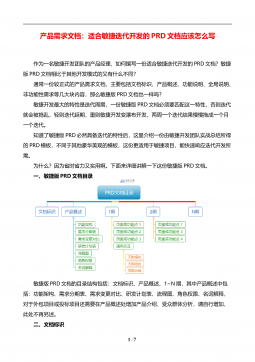
 2024-11-23 5
2024-11-23 5 -
产品需求文档 - 面向产品需求的验证管理VIP免费
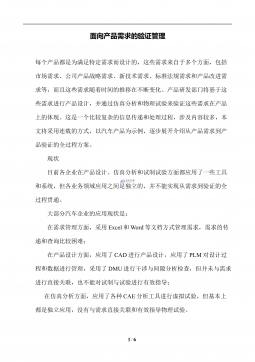
 2024-11-23 4
2024-11-23 4 -
产品需求文档 - 没有标准,只有沟通VIP免费
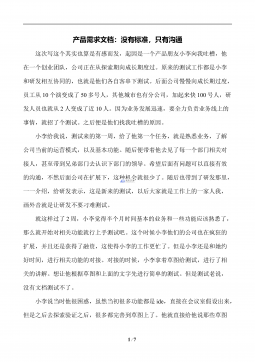
 2024-11-23 4
2024-11-23 4 -
产品需求文档 - 产品需求应该怎么写VIP免费
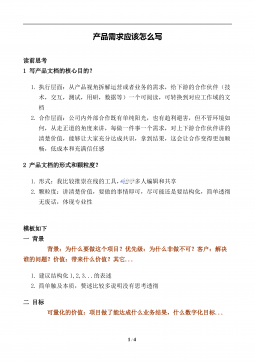
 2024-11-23 5
2024-11-23 5 -
产品需求文档 - 产品需求文档 PRD模板VIP免费

 2024-11-23 33
2024-11-23 33 -
产品需求文档 - 产品需求核心组件分析VIP免费
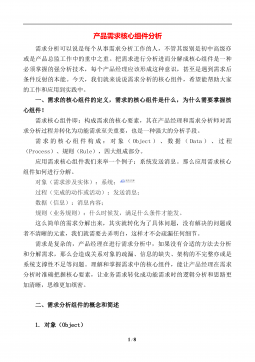
 2024-11-23 45
2024-11-23 45 -
2024版.新高考版.高考总复习.数学.5·3A版1_1集合VIP免费

 2024-11-23 29
2024-11-23 29 -
2024版.新高考版.高考总复习.数学.5·3A版1_1集合(分层集训)VIP免费

 2024-11-23 16
2024-11-23 16 -
产品需求文档 - 产品技能树之需求分析(一)VIP免费
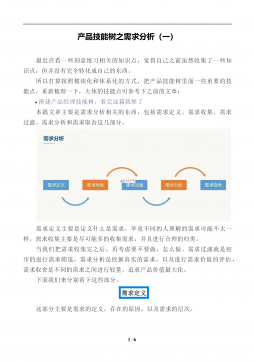
 2024-11-23 9
2024-11-23 9
分类:外语学习
价格:5.9玖币
属性:100 页
大小:319.81KB
格式:PDF
时间:2024-12-13




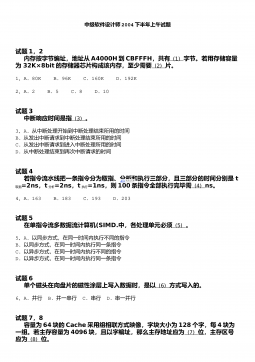
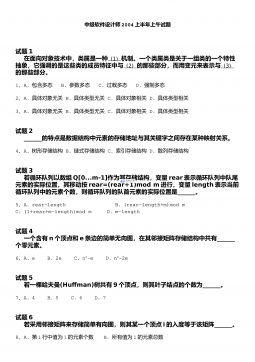
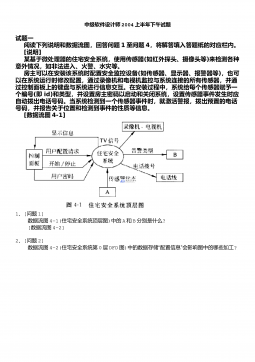
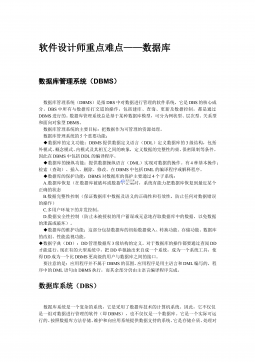
 渝公网安备50010702506394
渝公网安备50010702506394
